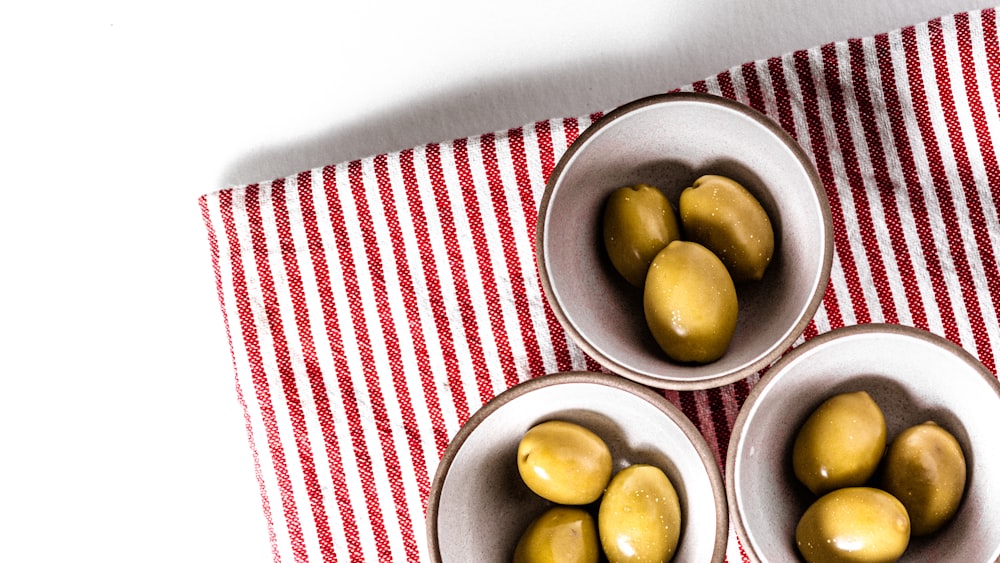Olives are one of those foods that people either adore or despise. If you fall into the absolutely adore category, you will probably want to know if you can still consume olives while following a low FODMAP diet. Is it true that olives are low FODMAP?
Green Olives
According to Monash University, pitted green olives are low in FODMAP and contain 15 small olives or around a half cup. Green olives are not a unique olive variety; they are just picked before they are completely ripe. Green olives have been harvested before being fully ripe, so they are still green in color. The texture and flavor of the olive are determined by how it has been cured.
Black Olives
When black olives are ripe, they are picked, and the texture and flavor will be affected by the curing process. In a single serving of 15 tiny olives (or about half a cup), black olives are low FODMAP.
Olive Oil
Refined olive oil and virgin olive oil are combined in this type of olive oil. It is the FODMAP-friendly refined olive oil that is been tested the least, but it is good all-purpose cooking oil. In a single teaspoon, it has a low FODMAP content.
Virgin Olive Oil
Extra virgin olive oil is difficult to come by in most stores. It is better than olive oil, but it is not as good as extra virgin olive oil. It is an unrefined oil, so no chemicals or heat were used to extract the fruit juice from the fruits. In a single tablespoon serving, it has a low FODMAP content.
Are Olives Low In FODMAP?

However, olive lovers may be relieved to learn that they are actually a low FODMAP food as long as they stick to the recommended serving and do not overdo it. Even on a very strict low FODMAP diet, you can consume an awful lot of olives.
Olives are also high in various nutrients, including vitamin A, unsaturated fats, and iron. They also include several plant chemicals that can help you avoid a variety of health issues.
How low In FODMAPs Are Olives?
On a low FODMAP diet, olives are among the few foods that are permissible. They are also quite low in FODMAPs since they do not have many carbohydrates. In a single sitting, you may eat about 15 olives or a half-cup serving on a low FODMAP diet. This is enough to ensure that your IBS symptoms do not return if you include olives in your meal plan.
On the other hand, keep in mind that this serving of olives has about 250 mg of sodium, which is around 11% of your daily required intake for this mineral.
Sodium is essential, but too much of it can raise your blood pressure. As a result, you are at an increased risk of strokes and heart attacks as a result of sodium excess. Sodium might also cause stomach irritation, which might exacerbate IBS symptoms. So, keep to the recommended serving sizes of olives to maintain optimum health.
Can You Eat Olives On The Low FODMAP Diet?

Olives are a low FODMAP food. So, you can eat them in a diet that is devoid of these indigestible carbohydrates without risking exacerbating your IBS symptoms. However, because they are high in FODMAPs, it is still essential to exercise caution. As a result, if you consume too many olives in one sitting, you might easily acquire an excessive amount of FODMAPs, which will cause the symptoms of your IBS.
Are Black Olives Low In The FODMAPs?
Green olives and black olives are both permitted in the same serving size. This is due to the fact that they contain comparable amounts of FODMAPs, allowing you to consume both. Black olives are also higher in calcium than green olives, so they can help you get your daily intake. However, keep in mind that because they are still high in sodium, they are harmful to you over time. So use black olives sparingly and as part of a healthy balanced diet.
Is Olive Oil Low In The FODMAPs?
Olive oil is suitable for a low FODMAP, IBS-friendly diet. You should not have any digestive system problems as long as you stick to typical serving sizes. However, be sure that the olive oil you are buying does not include garlic or onions. These two things are high in FODMAPs and should therefore be avoided on a low FODMAP diet.
Choosing olive oil instead of regular cooking oil might be beneficial to your health. It is high in healthy, monosaturated fats that can help keep your heart healthy. Olive oil also has a lot of antioxidants and anti-inflammatory properties. So, it makes an excellent addition to any diet.
Are Olives Good For Your Health?
Olives contain a substantial amount of fat. While this might be concerning to some individuals, the fats found in olives are actually quite healthy. Olives contain oleic acid – a monosaturated fatty acid that has been connected to decreased inflammation and a decreased risk of heart disease.
These, in particular, are beneficial to one’s cardiovascular health. Olives also include significant amounts of vitamin E, an antioxidant that combats oxidative cell damage. Such plant components aid in the removal of free radicals from your body, preventing cellular oxidation.
Vitamin E has several health benefits, including lowering your risk of heart disease, cancer, and diabetes. Vitamin E alone aids in the maintenance of healthy skin and eyes while also strengthening the immune system. Because it is fat-soluble, vitamin E is more likely to be absorbed if it comes from high-fat foods like olives on its own.
Olives also contain another fat-soluble vitamin, as well as an antioxidant called lutein. It aids in the prevention of night blindness and age-related macular degeneration. Vitamin Sufficient levels also decrease your risk of acne and promote healthy skin.
Conclusion
If you ate a number of olives sufficient to fulfill your daily requirement for these nutrients, you would have to consume a lot of them. However, it is still worth noting that eating them provides you with some nutrients. Olives also include numerous plant chemicals that may help improve your health.
Unripe olives, for example, are high in compounds that are linked to a decreased risk of heart disease, hypertension, and inflammation. Some of these chemicals may even aid in the management of blood lipids and reduce liver damage.
Black olives, in particular, are a rich source of iron. This mineral is essential for the formation of hemoglobin, a protein that transports oxygen throughout your body.
Not getting enough iron puts you at risk of anemia and increases your energy levels. So, if you eat too many olives, they can provide a slew of health advantages – as long as you do not eat too many of them. Because of their sodium content, this is crucial to know.
Similar Articles
- Curry Leaves Potato Chips
- Is Popcorn Low FODMAP?
- Low FODMAP Vegan Curried Potato And Spinach
- Is Broccoli Low FODMAP?
- Is Sushi Low FODMAP?
Leave a Reply